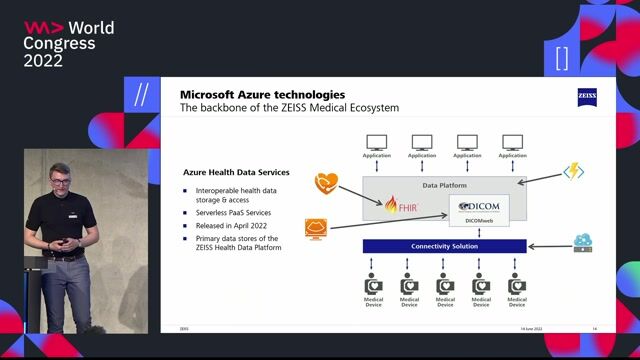Senior Machine Learning Researcher - MSR AI for Science
Role details
Job location
Tech stack
Job description
- Invent novel deep learning techniques for models of biomolecular structure, dynamics, and function.
- Design, implement, and iterate on model architectures and training algorithms (e.g., diffusion/sequence-structure models, representation learning); run rigorous ablations and baselines.
- Define success where standards don't exist: proposing sound benchmarks and uncertainty-aware metrics that reflect real-world utility.
- Build high-quality research code (Python/PyTorch) with reproducible work-flows and robust data pipelines.
- Partner across disciplines-communicate clearly with ML researchers and experimental/computational biologists; present results and influence direction.
- Work autonomously and as a team player, reporting insights, risks, and next steps with crisp written/visual summaries.
- Thrive with imperfect, heterogeneous data, using principled curation, augmentation, and probabilistic evaluation.
- Aim for impact: try ideas quickly and fail-fast when they don't work. Rapidly convert working ideas to artifacts others can use (code, models, datasets, papers, patents).
Benefits/perks listed below may vary depending on the nature of your employment with Microsoft and the country where you work.
Industry leading healthcare
Requirements
Do you have a Doctoral degree?, We seek a highly motivated Senior Researcher to join our Biomolecular Emulator (BioEmu) team. The BioEmu project aims to model the dynamics and function of proteins - how they change shape, bind to each other, and bind small molecules. This approach will help us to understand biological function and dysfunction on a structural level and lead to more effective and targeted drug discovery. Our BioEmu-1 model was published in Science (see our blog post for links to our open-source software and other resources and this explainer video)., Required:
- PhD or equivalent research experience in Computer Science, Machine Learning, Physics, or a related field.
- Demonstrated leadership in ML architecture and algorithm design.
- Strong expertise in deep learning (model design, large-scale training, evaluation and reproducibility), statistics and linear algebra.
- Proficiency in Python and modern ML/scientific frameworks (e.g., PyTorch, JAX, TensorFlow, NumPy, SciPy, Pandas).
- Peer-reviewed publications in leading venues (e.g., NeurIPS, ICML, ICLR or leading journals).
- Excellent technical communication for collaborating in an interdisciplinary team.
- Curiosity and drive to apply deep learning to biological problems.
- Comfort with real-world, noisy/heterogeneous data.
Preferred:
- ML Engineering skills (e.g., model optimization and deployment, code design, CUDA).
- Experience with biomolecular modeling or bioinformatics (e.g., folding systems, structural analysis/visualization, MD simulation, structure/genome databases).
- Ability to work with and interpret real-world biological data (e.g., cryo-EM, protein binding affinities, structural/biophysical measurements).
#Research #AI for Science










